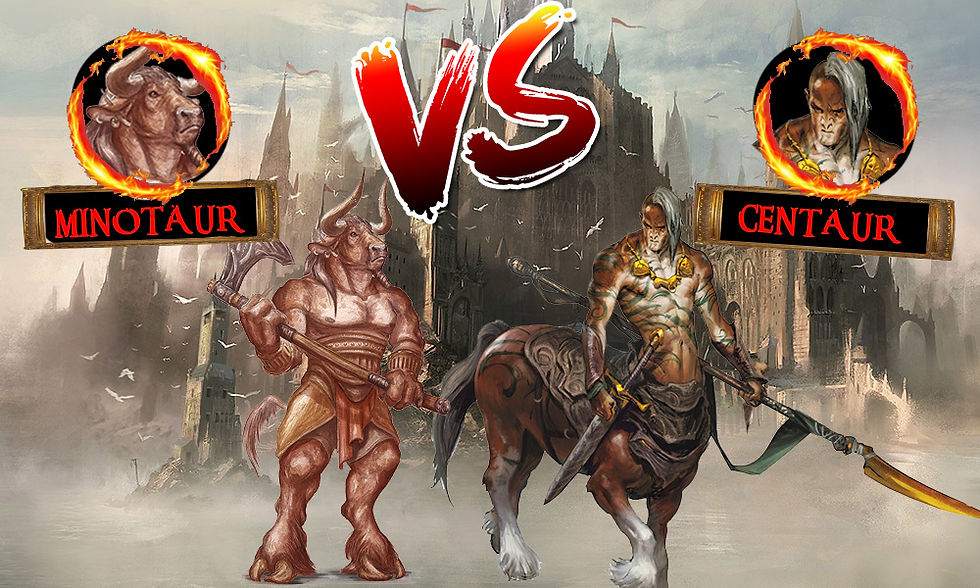Review: Power Outage by Bebarce El-Tayib - Table Top Fun for All Ages
- MrPuddins

- Jul 23, 2018
- 6 min read
A review of Power Outage by Bebarce El-Tayib. This kid-centered RPG just launched on Kickstarter, and we are going to talk about!

I had seen a few things regarding Power Outage before it launched. I was curious as to "What's that game with the toaster on it?" I was then asked if I would be willing to review a Table Top RPG that was not Dungeons and Dragons, and thought I why not. So, what is this Power Outage game you might ask? It is a Table Top RPG that is meant to be easy to learn, pick-up, and play. It is geared toward younger players, but also remain enjoyable and fun enough for adults to play as well. With this review, I hope to answer the question of "Is Power Outage worth backing?" Let's take a look.
First of all, to get this review rolling, I just want to say Bebarce is a gosh darn (keeping this post clean for the kids) genius for tapping into a market and an audience of the table top gaming hobby; children. Many games I have played are not too difficult to pick up at my age, but for younger audiences, I could imagine it being difficult. Sure some kids might be able to grasp DnD, but not every kid is like that. I struggled with 2nd ADnD when I was a kid. All in all, Power Outage looks to be a lot of fun for all ages.

Characters and Mechanics
The rules for Power Outage are pretty easy to pick up on. Creating a character, it does away with races and classes and opts for a sort of point buy system you may be familiar with if you've played GURPS or Mutants and Masterminds. By removing race and class, creating a character is that much easier. You get to choose so many powers with various effects and damages, and get so many at every level. They are broken down into 'combat,' 'utlility,' and 'support.' They are generic in that the effects are described, but it is open to how the player wants to describe them, which I think is pretty cool. I'm always down to clown with an open system.
There are 4 stats for characters. Impact (IMP), Power (POW), Ohmer (Ω), and Yield Points (YP). Travel serves as 'movement speed.' What the stats cover is pretty easy to understand. With 4 stats instead of the standard 6, it keeps things simple and there is no debate as to what action would fall under what. There is still the variety of dice being used, which is nice for introducing younger players to the ideas of d4s, d6s, d8s, etc. If making a character seems too daunting, the book has some sample heroes for players to dive right in and learn the system.
Children can easily pick up the game after running through it a few times, and I think with enough experience, they could even teach their friends to play as well! The rules might not scratch the itch of someone looking for a more complex system, but the book does address this. The rules are simple to support ease of play, quickness of learning, and to support imagination and storytelling. I think that last part is the most important because, in my experience, a lot of children who try RPGs get a little disheartened when they realize they are restricted by rules.

I really enjoy the open-ness of the game. Power Outage really serves to nurture and cultivate the vivid and whacky imaginations of kids. By not limiting powers to specific ones, players can come up with all sorts of heroes they might be imagining. Also, I really appreciate that the rules support teamwork and encourage it. With players being rewarded for working together, it will prevent lone wolves or uncooperative players, which can often happen with children.
CAPE
I really want to focus on this part of the book. Power Outage describes a way of setting up a session/adventure using the CAPE system.

It's a fun acronym that stands for Combat, Alternate, Puzzle, and Exploration. It is pretty self explanatory and easy to pick up. The book encourages the GM to utilize each part of CAPE into every session and adventure. It talks about putting a little bit of everything into the session and the sample adventures really showcase that. I personally feel the CAPE system is something that all GMs, both young and old, can utilize. It helps to provide a feeling of moving forward and prevents stagnation in a session. It allows players who enjoy different aspects of the game to enjoy a session, and for some people, they really like the variety of challenges and encounters in a session.
Lore

Admittedly, I wasn't able to dive into the lore as much as I would have liked to. From a quick glance, it seems interesting and adds a backdrop for the adventures to take place. The cast of heroes and villains who inhabit the island that Power Outage takes place on are very creative, quirky, and genuinely enjoyable. The different cities will have all your bases covered in terms of the various types of cities for your heroes to trounce about in such as a futuristic Japanese city, an atom punk, gothic city, a hive of scum and villainy, and an area for allowing more fantasy based adventures. Everything is covered, which is nice. There is plenty of variety to keep players occupied for awhile.
Accomdations
There is a whole chapter on accommodating different ages and needs at the table. I find this wonderful as it offers possible issues and solutions to those issues. It is here that the reader

really gets to see Bebarce El-Tayib's knowledge and love for his creation. It also talks about various ways of communicating and being able to try and read your players. It is here that we can see that Bebarce El-Tayib not only put a lot of love and effort into this project, but he also carefully thought out making this system as accessible to all ages and needs as possible. From his use of certain language to addressing various issues and solutions with running for all kinds of different children. He has obviously tested out this system extensively, and much like Mr. Rogers did, carefully thought out how to present the game and run it for ALL children. I'm coining it right now... Bebarce El-Tayib is the Mr. Rogers of table top gaming. You read it here on Kobold Stew. And from my limited interactions with Bebarce, I can say he is a very genuine and nice guy. He was willing to help me out with any questions or anything I needed, and from just following him on Twitter, he is always willing to interact with people. I think this sort of outreach and communication is important, especially with a system like this.

Final Verdict
So, I think it is important to answer the question; "Is Power Outage worth backing?"
If you are looking to play tabletop RPGs with kids who either you want to introduce the hobby to or who want to join the big kids at the table, it is the perfect system. I think it also makes a nice 'beer & pretzels' game for those in the older audience who want to take a break from other systems for a session or so. I would have fun playing in it. It is a fun romp, that is for sure.
Power Outage is the perfect system for introducing young children or even complete novices to tabletop RPGs. It is also a good system for a casual game night for adults. I think the fun can be had by all ages with this system
Even if you are not interesting in playing with kids or even the system, I would still implore that you kick a few bucks Power Outage's way because it is a quality system with a lot of thought put into it , and it is important to the hobby to be able to allow younger children to play too. And there is no one else I would entrust that quest with more than Bebarce El-Tayib, the Mr. Rogers of tabletop RPGs.
I hereby give Power Outage the Kobold Stew 'Seal of Approval!'

Here is the link to the kickstarter if you ware interested in checking that out or giving Bebarce a few bucks. I know I will be: https://www.kickstarter.com/projects/poweroutage/power-outage-a-trpg-for-kids-and-adults?ref=535419&token=39697523
Until next time you crazy kids,
Happy gaming,
Uncle Puddins





Khelraja is ranked among the best betting sites in India, offering users a complete entertainment experience. From cricket to casino, the platform ensures secure gaming, quick payouts, and non-stop rewards. Choose Khelraja, one of the best betting sites in India, to experience excitement, reliability, and winning opportunities in every bet you make!